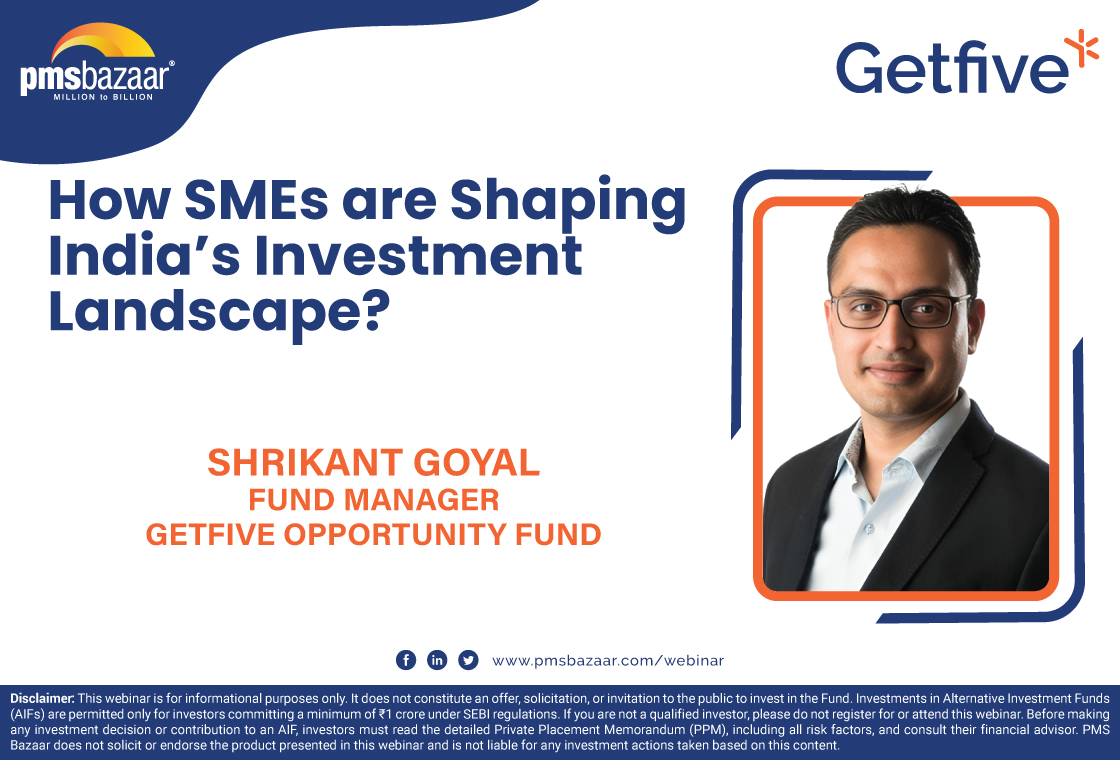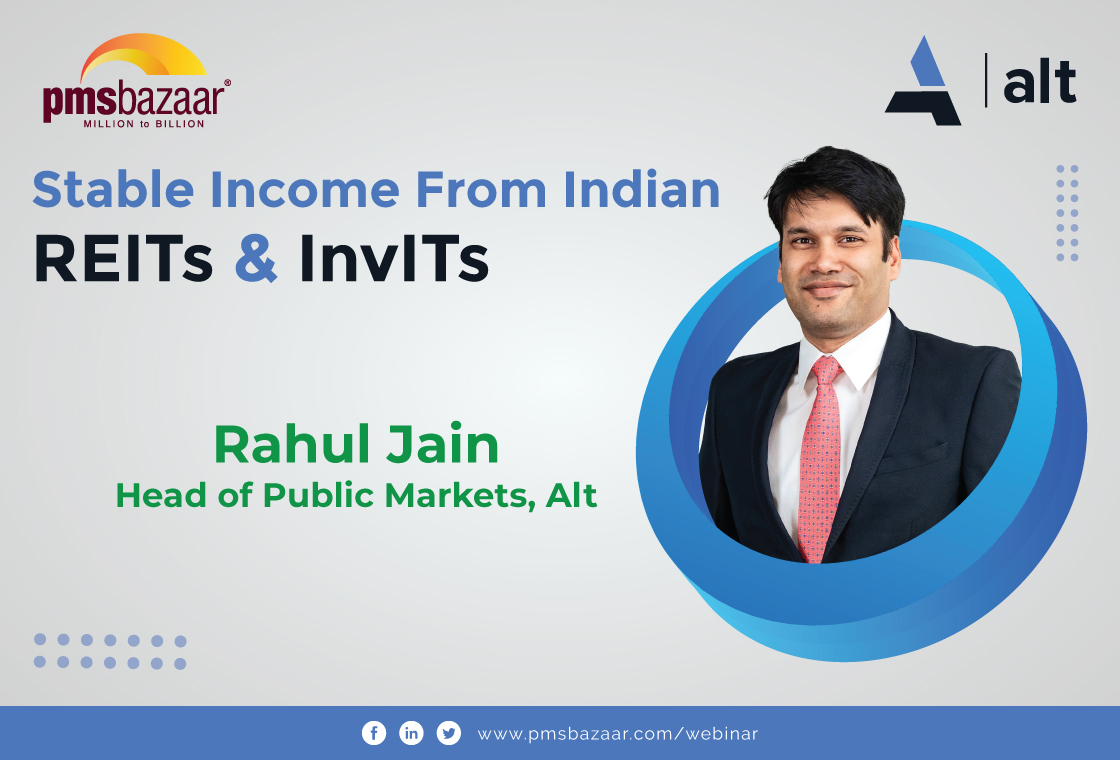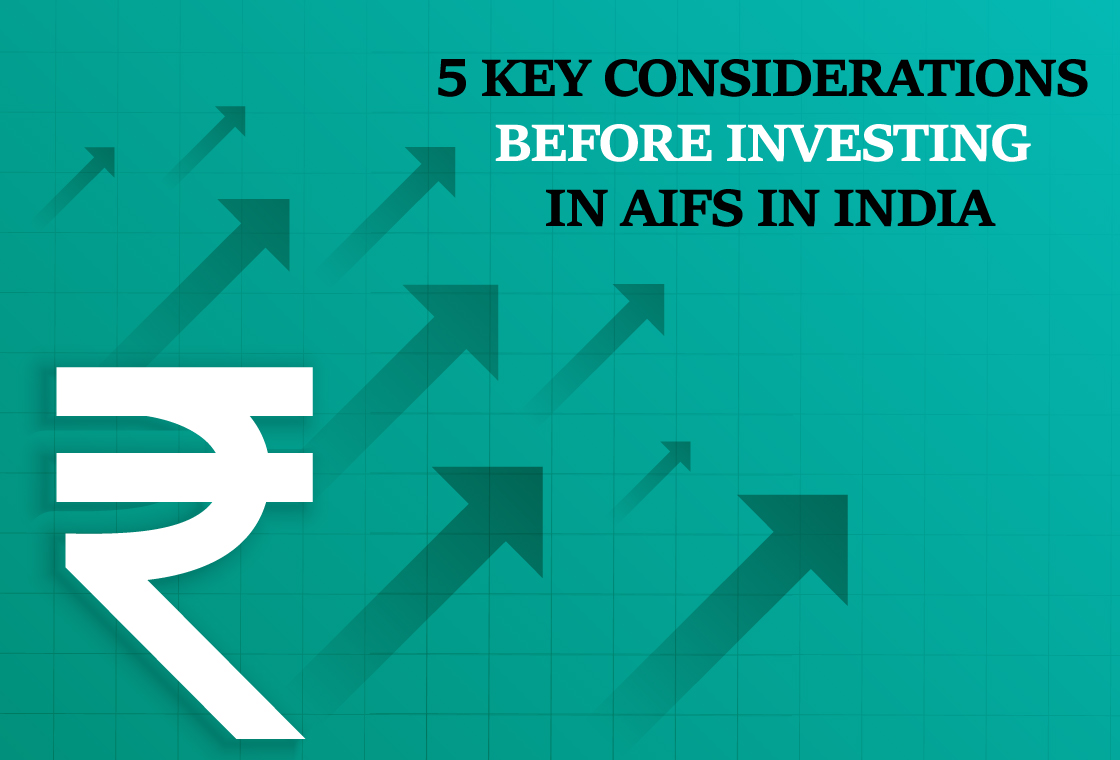Alternative investment funds (AIFs) are seen as great wealth creators with untapped potential, offering superior returns through various investment strategies and risk management techniques. AIFs invest in diverse areas like real estate, venture capital, private equity, and stressed assets.

PMS Bazaar conducted its second edition of the Dubai Alternative Investment Summit (DAIS) on February 17, 2024. As part of this event, the company invited various industry experts to share their insights on the Indian alternative industry. They discussed on multiple topics. Among the various topics of discussion was a panel that focused on the multiple alternative investment funds available in India and the opportunities they hold for long-term wealth creation.
The topic of the panel discussion was: Unlocking the Potential of Alternative Investment Funds
Panel experts were:
Dinesh Giridhar, MD &CEO – Asset and Wealth Management, Dolat Capital; Hemant Daga, Co-founder & CEO of Neo Asset Management; Karthik Athreya, Director & Head of Strategy for Alternative Credit, Sundaram Alternates; Suyash Kela, Lead-Investment Team, Singularity AMC;
Moderator: Vignesh Shankar, Founder & Managing Partner, Artha99
Alternative investment funds (AIFs) can be great wealth creators over the long term. Their penetration has barely scratched the surface and has immense potential. To throw more light on this aspect, Vignesh Shankar sought to understand the kind of opportunities currently available in AIFs and the key drivers for growth.
Pointing out that banks are increasingly moving away from wholesale to retail lending, Hemant Daga said that this leaves a void for special forms of financing for asset managers. He cited Blackstone trading at 30 PE multiple to JP Morgan trading at 12 PE to clarify how investors viewed asset managers vis-à-vis banks. Roads and solar plants are some examples of AIF investments to generate superior assured cashflows.
Volatility and risk management
Talking about mitigating volatility, Dinesh Giridhar said a long-short strategy manages to capture the best of market upsides and downsides. Protecting capital and delivering absolute returns were critical in his view.
On risk management in real estate investments, Karthik Athreya said allocation remained fundamentally important. Therefore, financial real estate investment was better than physical assets in his opinion, as the former ensured diversification and better IRRs. He added that the RERA Act has enabled greater transparency and governance for customers. Athreya said investments (performing credit) in projects with regular coupon pay-outs or income distributions every quarter ensure cash flow and reduce risk.
When it comes to investors’ interest, Suyash Kela said in India public markets ran in a complementary way to private markets. He noted that start-up valuations had fallen in the last three years, but public markets have seen an upcycle. Kela said 60% of the allocation is done on the private side and 40% in pre-IPO companies. This combination ensures good risk-adjusted returns. He noted that consumer brands in the premium segments, transition to cleaner energy and electric vehicles offered good potential as did cybersecurity in the software space.
Alternative investment funds: Options
The discussion shifted towards the preference of financial assets over physical assets in the real estate context. Here, Athreya said since fractionalization was happening rapidly in real estate properties, there was considerable demand. He said family offices, HNIs and even insurance companies were driven by allocation concerns, inflation hedges and the like to consider AIFs in real estate.
On stressed assets, Daga said stress does not mean the death of a business. Buying EBITDA-positive companies that could be turned around could have great payoffs later on. He cited the turnaround examples of Gokaldas Exports, Essar Steel and JSW Steel to reinforce his case.
Watch and listen to the entire panel discussion for in-depth insights on reasons to invest in Indian alternative assets, the multiple options available and the factors that work in its favour for wealth creation.
Get access to rich data and analytics of PMS & AIF by subscribing to us. Join the 60000+ investors & experts now: Subscribe NOW
Recent Blogs

Long-Only AIFs Rebound Sharply in October; Long-Short Strategies Lag Despite Lower Volatility
106 long-only AIFs averaged 3.68% vs 32 long-short AIFs at 2.7%; only 24–31% of funds beat key indices

Markets log strongest monthly gains in 7 months; PMS performance turns near-uniform in October
Nifty 50 TRI gained 4.62%, BSE 500 TRI rose 4.27%; 415 of 427 equity PMSes ended positive

How SMEs are Shaping India’s Investment Landscape?
PMS Bazaar recently organized a webinar titled “How SMEs are Shaping India’s Investment Landscape?” which featured Mr. Shrikant Goyal, Fund Manager, GetFive Opportunity Fund.

Stable Income from Indian REITs and InvITs
PMS Bazaar recently organized a webinar titled “Stable Income from Indian REITs and InvITs,” which featured Mr. Rahul Jain, Head of Public Markets, Alt.

5 Key Considerations Before Investing in AIFs in India
Alternative Investment Funds (AIFs) have emerged as a compelling option for sophisticated investors seeking diversification and potentially superior returns. But venturing into AIFs requires a clear understanding of their unique characteristics that go beyond simply knowing what they are and their categories.

How AIF can help in diversification?
Traditionally, Indian investors have relied on a mix of stocks and bonds to build their wealth. While this approach offers diversification, it can still leave your portfolio vulnerable to market fluctuations. Enter Alternative Investment Funds (AIFs), a dynamic asset class gaining traction for its ability to unlock diversification beyond the realm of conventional options.

Long-Short AIFs Outperform Again Even as Markets Rebound in September
104 long-only funds shows an average monthly gain of just 0.37 per cent, while long-short AIF category averaged 0.94 per cent

Resilience returns as markets rebound in September; Multi-asset PMSes lead pack
Over 63% of equity PMSes ended September in green; nearly two-thirds outperformed key benchmarks.

